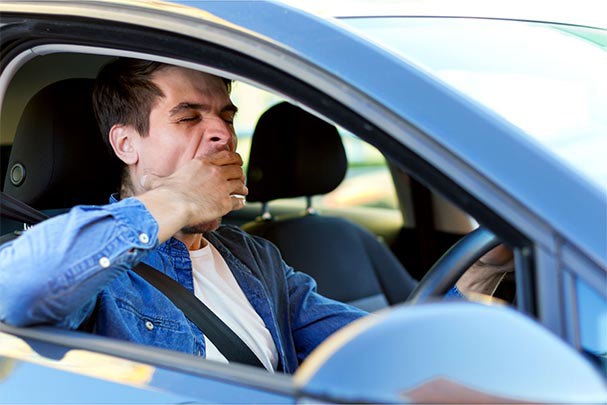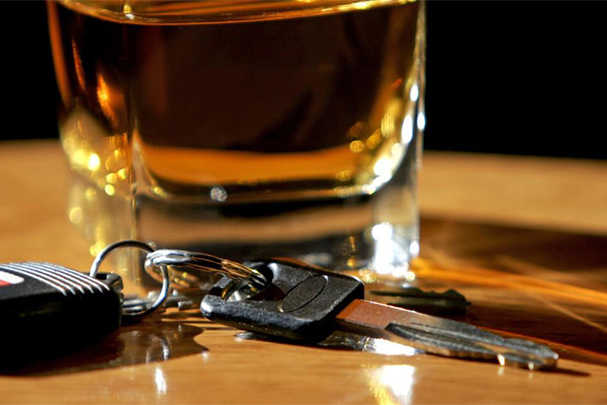
Nationwide Vehicle Contracts sheds light on the severity of both drowsy driving and drunk driving
Road safety is a critical concern, and two common but highly perilous issues continue to pose a significant threat to drivers, passengers, and pedestrians alike: drowsy driving and drunk driving. In this blog, we'll delve into the risks and consequences associated with these two dangerous behaviours to shed light on the severity of each. While drowsy driving and drunk driving are distinct problems, they share some alarming similarities, and it's essential to understand them in order to combat these threats effectively.
Drowsy Driving
Drowsy driving is often underestimated in its potential for harm. It occurs when a driver operates a vehicle while fatigued or sleep-deprived. While it may not carry the same societal stigma as drunk driving, it can be just as dangerous, if not more so. Here are some of the key risks associated with drowsy driving:
- Impaired Reaction Time: Fatigue can slow down a driver's reaction time, making it difficult to respond to unexpected situations on the road.
- Reduced Alertness: Drowsy drivers may experience reduced alertness, which can lead to missing important cues and signs.
- Microsleeps: In severe cases, drowsy drivers may experience microsleeps – brief lapses in consciousness – that can result in a loss of control over the vehicle.
- Impaired Decision-Making: Fatigue can impair a driver's decision-making abilities, leading to risky and potentially fatal choices.
- Consequences of Drowsy Driving: The consequences of drowsy driving can be devastating. Accidents caused by drowsy driving often result in injuries and fatalities, leaving victims and their families to cope with the aftermath. Legal consequences, including fines and potential criminal charges, can also be part of the package.
Drunk Driving
Drunk driving is a widely acknowledged danger, with stringent laws and public awareness campaigns aimed at curbing this menace. It involves operating a vehicle under the influence of alcohol or other intoxicating substances. The risks associated with drunk driving include:
- Impaired Coordination: Alcohol impairs motor skills and coordination, making it difficult to control a vehicle.
- Impaired Judgment: Intoxicated drivers may take unnecessary risks due to impaired judgment.
- Reduced Inhibitions: Drunk drivers may be more likely to speed, disregard traffic laws, and engage in other dangerous behaviours.
- Slower Reaction Time: Alcohol affects cognitive functions, leading to slower reaction times.
- Consequences of Drunk Driving: Drunk driving accidents can have severe consequences. These accidents often result in injuries or fatalities, and the legal penalties for driving under the influence can be substantial, including fines, license suspension, and even imprisonment.
Similarities Between Drowsy and Drunk Driving
Drowsy driving and drunk driving have some key things in common that make them equally dangerous:
- Slow Reactions: Both drowsy and drunk drivers can't react quickly. When you're tired or have been drinking, you can't respond fast to changes on the road.
- Bad Choices: Drowsy and drunk drivers often make poor decisions. Tired people might not think clearly, and alcohol can make you misjudge risks. This can lead to risky driving.
- Trouble Staying Focused: Drowsy and drunk drivers have a hard time paying attention to driving. Being tired or having alcohol in your system can make you lose focus, which is dangerous, especially in busy traffic.
- Higher Accident Risk: Both drowsy and drunk driving significantly increase the chance of accidents. Drowsy drivers might briefly fall asleep, leading to uncontrollable swerving or even crashing. Drunk drivers often drive recklessly due to impaired coordination and judgment, leading to crashes and collisions.
These shared problems show how dangerous both drowsy and drunk driving can be. It's vital to prevent these behaviours to make the roads safer for everyone. In the next sections, we'll look at what makes each type of impairment unique and the consequences of drowsy and drunk driving.

Legal Penalties Consequences
Drowsy Driving: Drowsy driving doesn't have specific laws, but if a drowsy driver causes an accident, they might face charges like reckless or dangerous driving. This could lead to fines, license suspension, or even jail time.
- Drunk Driving: Drunk driving is against the law in the UK, and the penalties include:
- Fines: You'll have to pay a significant fine based on your alcohol level and past offences
- Losing Your License: You can't drive for a while, which can disrupt your life
- Jail Time: In serious cases, like accidents with injuries or deaths, you might go to jail
Emotional and Personal Consequences
Both drowsy and drunk driving can lead to:
- Guilt and Regret: Drivers feel bad about causing harm
- Trauma and Loss: Victims and their families suffer from injuries, disability, or death
- Financial Problems: Fines and higher insurance costs can hurt your wallet
- Job Issues: Losing your license or going to jail can affect your job
- Relationship Strain: These incidents can damage personal relationships
It's not just about the law; drowsy and drunk driving can have a lasting impact on people's lives. That's why safe and responsible driving is so crucial.
Prevention and Awareness of Drowsy and Drunk Driving
Preventing drowsy and drunk driving is essential for the safety of all road users. Here are some tips to avoid these dangerous behaviours and examples of awareness initiatives in the UK:
Preventing Drowsy Driving:
- Get Enough Sleep: Ensure you get a good night's sleep, especially before long drives. Adults generally need 7-9 hours of sleep each night.
- Take Breaks: During long journeys, take regular breaks to rest and refresh yourself.
- Avoid Medications: Be aware of the side effects of any medications you're taking, and avoid driving if they make you drowsy.
- Limit Nighttime Driving: If possible, avoid driving during the late night or early morning hours when drowsiness is more likely.
Preventing Drunk Driving:
- Designated Driver: Always have a designated driver who doesn't consume alcohol when you go out drinking.
- Use Public Transport: Use public transport, taxis, or ridesharing services when you've been drinking.
- Alcohol Limits: Know your alcohol limits and stick to them. The legal blood alcohol limit for drivers in the UK is very low.
- Plan Ahead: Plan your transport home before you start drinking. This could be a taxi or public transport.
By following these prevention tips and supporting awareness campaigns, individuals can play a crucial role in reducing the risks of drowsy and drunk driving. It's a collective effort to create safer roads and protect lives in the UK.
Conclusion
Drowsy driving and drunk driving are both significant threats on the road, and it's crucial to raise awareness about the dangers they present. The risks and consequences of these behaviours are real and can have life-altering effects. To promote road safety, it's essential for individuals to recognize the dangers of drowsy and drunk driving and make responsible choices behind the wheel. Whether you're fighting fatigue or considering that extra drink, remember: the safety of all road users is in your hands. Let's work together to make our roads safer for everyone.
For more information about drink driving, why not check out our How Long Should You Wait Before Getting Behind the Wheel guide? We also produce a range of weekly blogs on various topics, which can be found in the blog section of our website.
Nationwide Vehicle Contracts are one of the UK's leading car leasing brokers and offer a range of leasing deals to suit every need. To find out more, check out our comprehensive car leasing guides or call one of our experts on 0345 811 9595.

